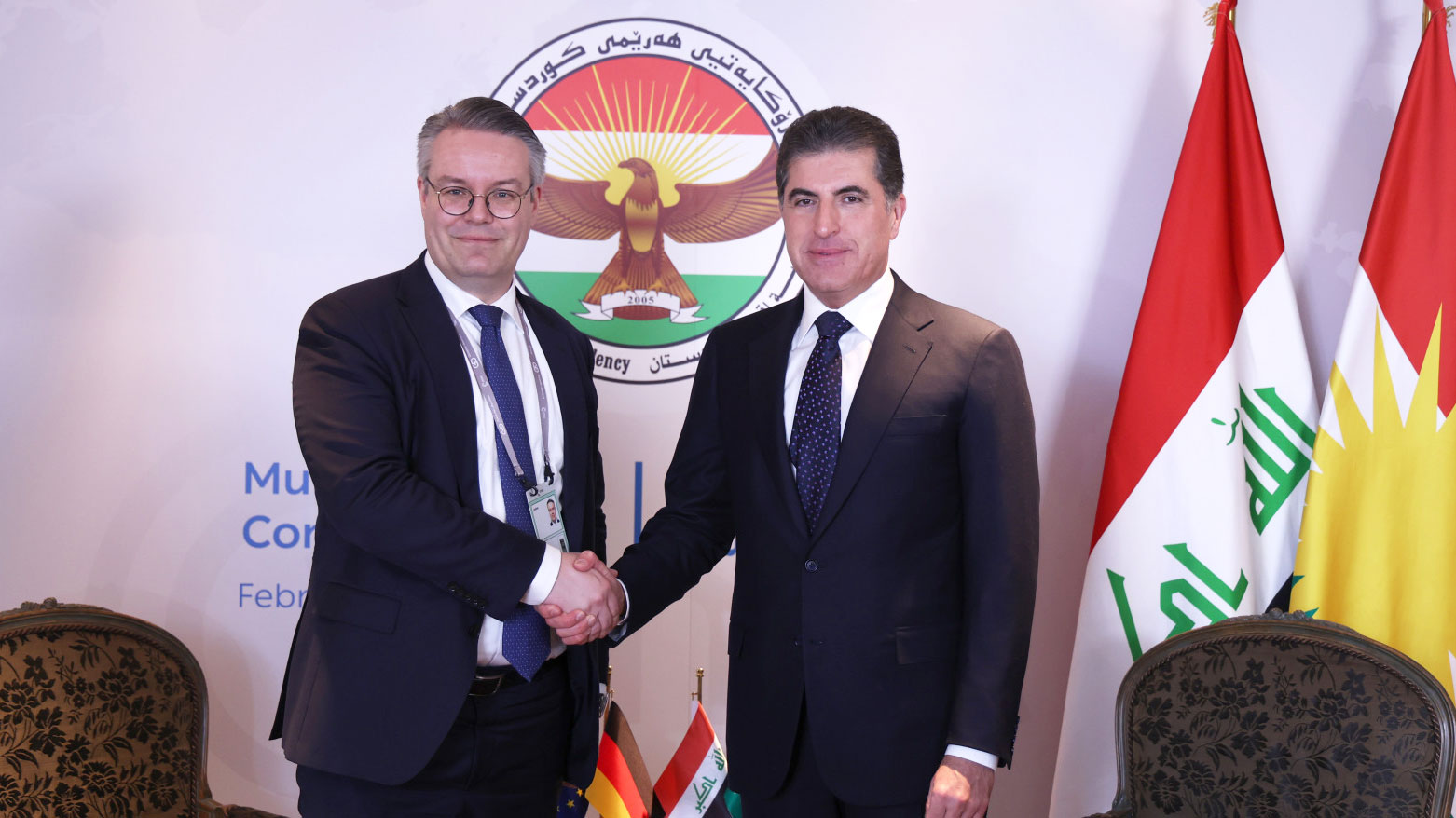KRP Nechirvan Barzani, German Minister Discuss Regional Stability at MSC2025
Their meeting underscored the growing importance of international cooperation in addressing regional security challenges and fostering stability in the Middle East.

ERBIL (Kurdistan24) – Kurdistan Region President (KRP) Nechirvan Barzani met with Dr. Tobias Lindner, Minister of State at the Federal Foreign Office of Germany, on the concluding day of the Munich Security Conference, where they held comprehensive discussions on strengthening ties between Germany, Iraq, and the Kurdistan Region.
Their meeting underscored the growing importance of international cooperation in addressing regional security challenges and fostering stability in the Middle East.
During the talks, both leaders explored opportunities to enhance cooperation across multiple sectors, emphasizing Germany’s longstanding partnership with Iraq and the Kurdistan Region.
They reaffirmed their commitment to deepening diplomatic, economic, and security collaborations, particularly in light of the evolving geopolitical landscape.
Kurdistan Region President Barzani expressed appreciation for Germany’s continuous support, particularly in humanitarian aid, economic development, and military training programs that have contributed to regional security and resilience.
A significant aspect of the discussions centered on the complex situation in Syria and its far-reaching implications. Both Kurdistan Region President Barzani and Minister Lindner underscored the need for a comprehensive and inclusive approach to resolving the ongoing conflict.
They highlighted the importance of ensuring participation from all Syrian communities in shaping the country’s political future, stressing that a sustainable peace process must recognize and protect the rights of all ethnic and religious groups, including the Kurdish population.
Kurdistan Region President Barzani reiterated the Kurdistan Region’s stance on the necessity of safeguarding the Kurdish people’s rights in Syria, advocating for a peaceful and democratic solution that guarantees stability for all communities.
He emphasized that the inclusion of Kurds and other marginalized groups in Syria’s future governance structure is crucial to achieving lasting peace and preventing further fragmentation of the country.
As regional dynamics continue to shift, the meeting reaffirmed the strategic significance of maintaining strong ties between the Kurdistan Region and Germany. With Germany playing a key role in international diplomatic efforts and humanitarian support, both parties expressed their shared commitment to continued dialogue and cooperation.
Their exchange of perspectives at the Munich Security Conference reflects ongoing efforts to navigate the challenges of Middle Eastern geopolitics and work toward a stable and prosperous future for all involved.